The CBD Expert Series: Talking Drug Tests with a Lab Tech
We often hear from folks who take CBD without realizing it could contain THC. At best, they feel a little loopy afterwards; at worst, they are faced with a drug test they likely won’t be able to pass.
Recently, Tierney Brannigan from CBD Oil Review caught up with Melissa, who’s a Laboratory Technician at one of the world's largest medical product manufacturers and toxicology screen providers, to talk drug test basics and things to keep in mind if you’re considering using CBD oil.
This interview is meant for educational purposes, and was not sponsored by Melissa, her employer, or any other business.
Tierney Brannigan (CBD Oil Review) What drugs are typically tested for on a drug test?
Melissa (Lab Technician): Just about any drug can be tested for on a drug test. This really just depends on which drug panel a person decides to test for. For example, some drug panels may test for only one drug type (e.g. THC), while others can test for several different types of drugs (e.g. THC, opiates, antidepressants, etc).
How do drug tests work?
It depends on which type of drug test, however one of the most common drug tests are lateral flow assays, or urine drug tests. People often choose lateral flow assays because they are very fast, low cost, and relatively simple to read.
There are three major subcomponents to a lateral flow assay: a sample pad, conjugate pad, and nitrocellulose membrane. The sample pad is made up of a mixture of buffers and salts. The conjugate pad is comprised of buffers, colloidal gold (in most cases), and a target specific antibody. Lastly, wIthin the membrane you have a mixture of buffers and an antigen that corresponds to a specific type of drug.
When you perform a drug test, the urine sample first flows through the sample pad, which helps bind the drug to the membrane and conjugate pad. Once the urine reaches the conjugate pad, the drug will bind to the conjugated antibody and migrate to the membrane. The membrane is very porous, which allows us to detect which drugs are present because it will display a control line and test line. Once the drug test is complete (typically after 5 minutes), you can read the intensity of the line to determine the amount of the drug in an individual’s system.
In what cases could CBD oil cause someone to fail a drug test?
There shouldn’t be any cases where someone would fail a drug test after using pure CBD oil because cannabidiol (CBD) is not tested for on drug tests.
Assuming someone takes a CBD product and it contains THC, are there ways to get the THC out of their system faster?
The only sure way to get THC out of your system is time. THC is stored within your fat cells so I wouldn’t be surprised if exercise and water would help speed up the time it takes to leave the system.
There shouldn’t be any cases where someone would fail a drug test after using pure CBD oil…
How long does cannabis typically stay in your system?
This depends on several different factors. For example, how much body fat a person has, how often and the amount of cannabis they consume, and how sensitive or advanced the drug test is.
It may only take a few days for a person that rarely consumes THC and has a healthy lifestyle, whereas it can take several weeks for someone that has a higher body fat percentage and THC levels.
The only sure way to get THC out of your system is time.
Are take-home drug tests as accurate as lab-conducted drug tests?
Although take-home tests are reliable, they can be less sensitive than laboratory tests. Laboratory tests increase their sensitivity by being able to test for several different drug cutoff levels, which correspond to the amount of drug present in a person’s system that would merit a pass or no-pass on the drug test. Some take-home drug tests will only be able to detect a specific drug cutoff level.
Do you have an opinion about the cleanses people use to detox before taking their drug tests?
It’s hard to say whether or not a cleanse works because there really isn’t any empirical evidence showing that they remove toxins. I personally wouldn’t trust them because they are not FDA-approved and may contain potentially harmful ingredients.
More Expert Series Interviews

The CBD Expert Series: Jackie Bowen on Mislabeled & Misleading CBD Oil
Read More
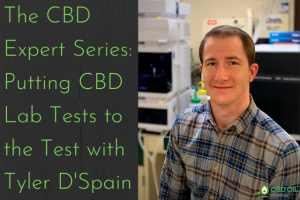
The CBD Expert Series: Putting CBD Lab Tests to the Test with Tyler D'Spain
Read More
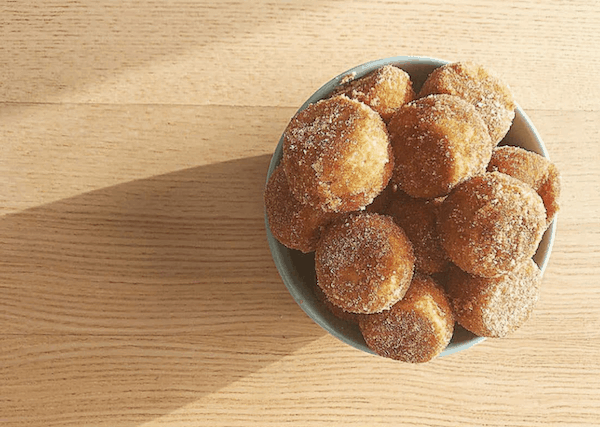
MasterChef Nick Nappi's CBD Apple Cider Donut Hole Recipe
Read More
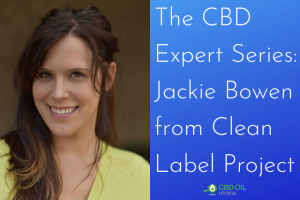
The CBD Expert Series: Jackie Bowen from Clean Label Project
Read More

The CBD Expert Series: Certificates of Analysis 101 with Dustin Jones
Read More
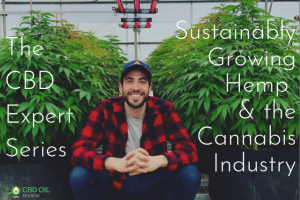
The CBD Expert Series: Sustainably Growing Hemp & the Cannabis Industry
Read More
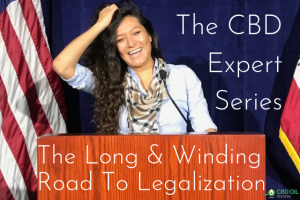
The CBD Expert Series: The Long & Winding Road To Legalization
Read More

The CBD Expert Series: The Joy of Corporate Philanthropy
Read More

The CBD Expert Series: Teaching the Truth About Cannabis Through Film
Read More
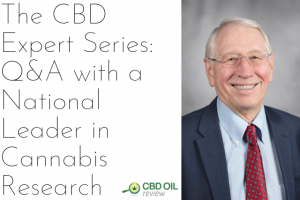
The CBD Expert Series: Q&A with a National Leader in Cannabis Research
Read More

The CBD Expert Series: Sexual Health and Pleasure with Sex Educator Kiana Reeves
Read More
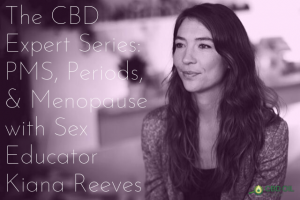
The CBD Expert Series: PMS, Periods, & Menopause with Sex Educator Kiana Reeves
Read More

The CBD Expert Series: From Masterchef to Cannabis Chef with Nick Nappi
Read More
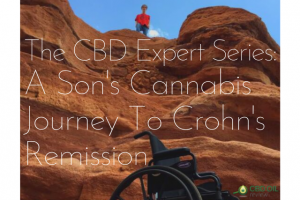
The CBD Expert Series: A Son's Cannabis Journey To Crohn's Remission
Read More
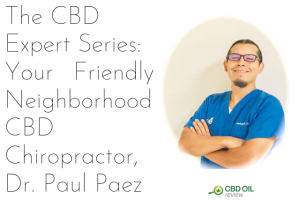
The CBD Expert Series: Your Friendly Neighborhood CBD Chiropractor, Dr. Paul Paez
Read More
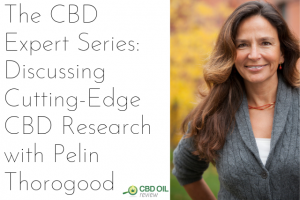
The CBD Expert Series: Discussing Cutting-Edge CBD Research with Pelin Thorogood
Read More
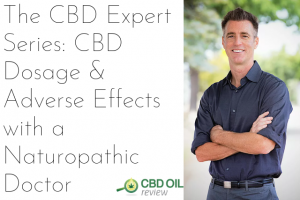
The CBD Expert Series: CBD Dosage & Adverse Effects with a Naturopathic Doctor
Read More

The CBD Expert Series: Talking Drug Tests with a Lab Tech
Read More
Opinions expressed in this article are those of our guest (the interviewee) and not necessarily of CBD Oil Review.
6 Smart Questions to Ask BEFORE You Buy CBD
Get the Ultimate CBD Buyer’s Guide and you won’t look at CBD the same way again!



 search
search